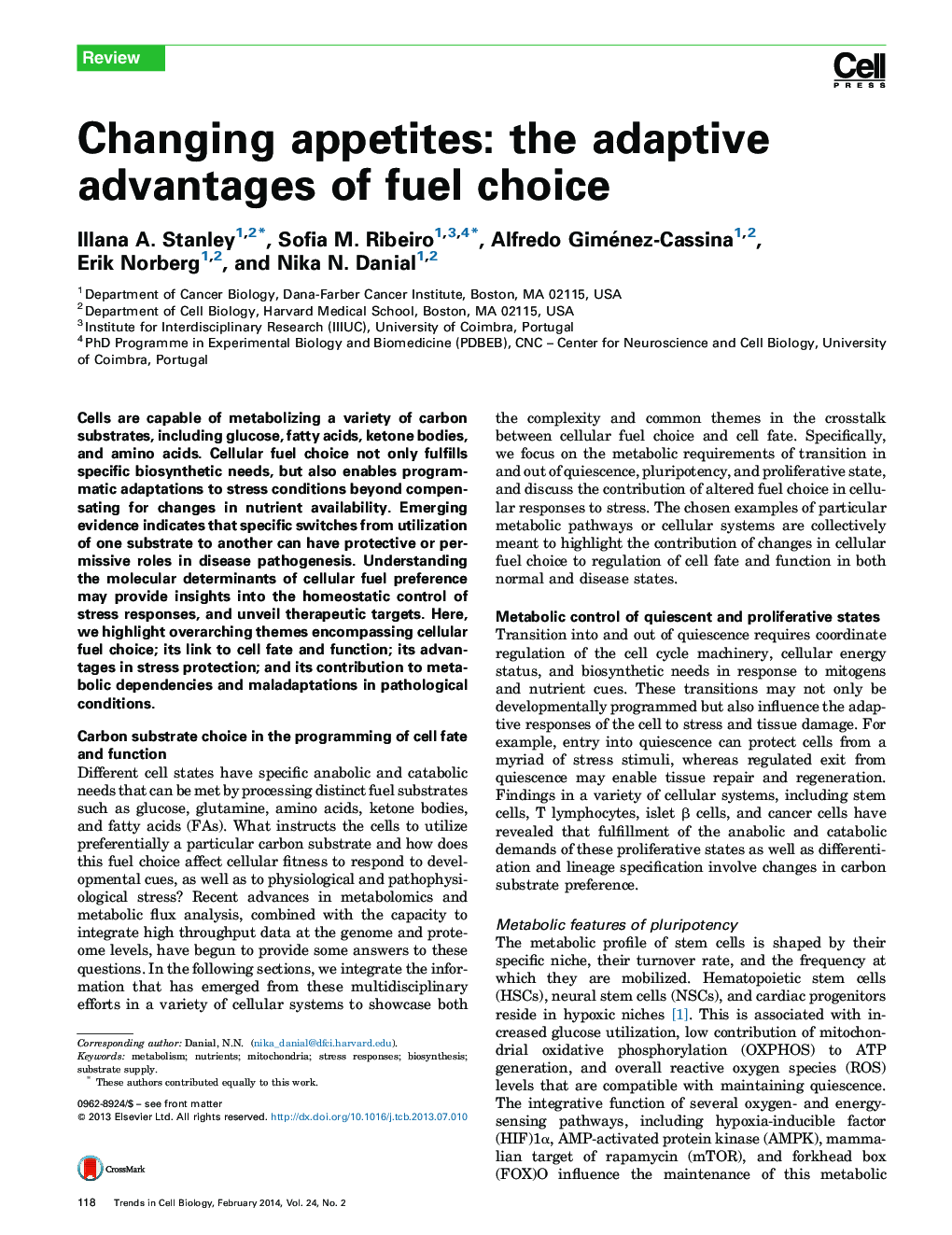| Article ID | Journal | Published Year | Pages | File Type |
|---|---|---|---|---|
| 2204439 | Trends in Cell Biology | 2014 | 10 Pages |
•Cells can use different metabolic fuels as an adaptive advantage to stress.•Proliferation and differentiation are accompanied by metabolic rewiring.•Mitochondrial architecture and metabolic compartmentalization influence fuel choice.
Cells are capable of metabolizing a variety of carbon substrates, including glucose, fatty acids, ketone bodies, and amino acids. Cellular fuel choice not only fulfills specific biosynthetic needs, but also enables programmatic adaptations to stress conditions beyond compensating for changes in nutrient availability. Emerging evidence indicates that specific switches from utilization of one substrate to another can have protective or permissive roles in disease pathogenesis. Understanding the molecular determinants of cellular fuel preference may provide insights into the homeostatic control of stress responses, and unveil therapeutic targets. Here, we highlight overarching themes encompassing cellular fuel choice; its link to cell fate and function; its advantages in stress protection; and its contribution to metabolic dependencies and maladaptations in pathological conditions.
